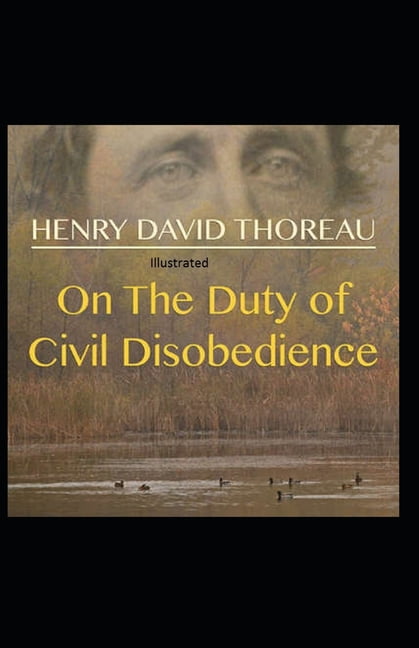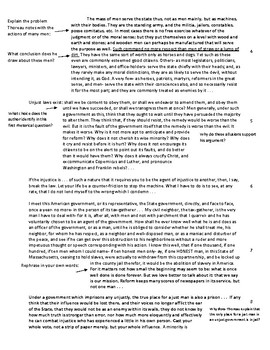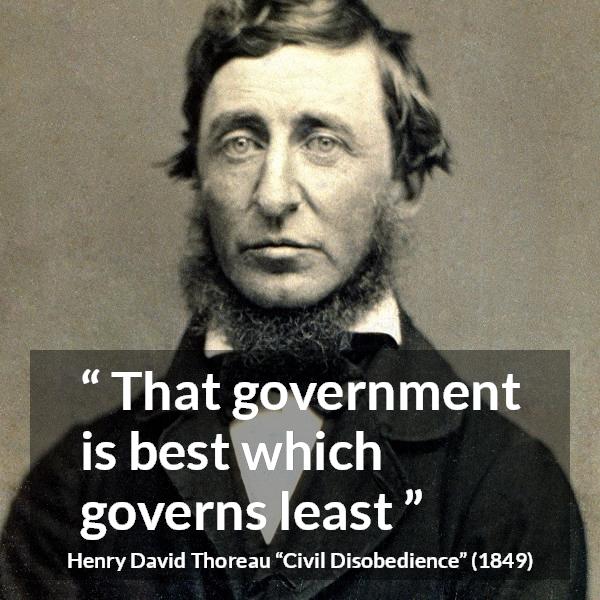

Thoreau argues that it operates because the public has elected it to serve its interests, yet it is prone to abuse. In this sense, the government is merely a pragmatic force, a means to reach the goal. The author advocates for the authority that does not interfere with the lives of citizens. 1862.Thoreau begins the work by stating that he agrees with the “motto” that “government is best which governs least” (Thoreau 5). Thoreau's philosophy of nonviolent resistance influenced the political thoughts and actions of such later figures as Leo Tolstoy, Mohandas K. Haught in 2000 Years of Disbelief.) When Parker Pillsbury sought to talk about religion with Thoreau as he was dying from tuberculosis, Thoreau replied: "One world at a time." In a diary he noted his disapproval of attempts to convert the Algonquins "from their own superstitions to new ones." In a journal he noted dryly that it is appropriate for a church to be the ugliest building in a village, "because it is the one in which human nature stoops to the lowest and is the most disgraced." (Cited by James A. His activist convictions were expressed in the groundbreaking On the Duty of Civil Disobedience (1849).

During his sojourn there, Thoreau refused to pay a poll tax in protest of slavery and the Mexican war, for which he was jailed overnight. His two-year experience in a hut in Walden, on land owned by Emerson, resulted in the classic, Walden: Life in the Woods (1854). Becoming a Transcendentalist and good friend of Emerson, Thoreau lived the life of simplicity he advocated in his writings.

He graduated from Harvard University in 1837, taught briefly, then turned to writing and lecturing. In 1817, Henry David Thoreau was born in Massachusetts. Among his lasting contributions were his writings on natural history and philosophy, where he anticipated the methods and findings of ecology and environmental history, two sources of modern day environmentalism. Thoreau's books, articles, essays, journals, and poetry total over 20 volumes. Henry David Thoreau (born David Henry Thoreau) was an American author, naturalist, transcendentalist, tax resister, development critic, philosopher, and abolitionist who is best known for Walden, a reflection upon simple living in natural surroundings, and his essay, Civil Disobedience, an argument for individual resistance to civil government in moral opposition to an unjust state.


 0 kommentar(er)
0 kommentar(er)
